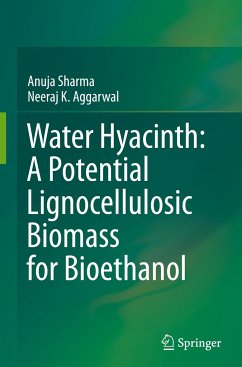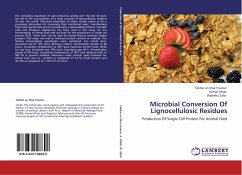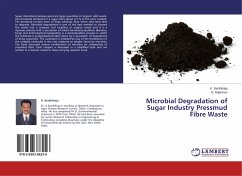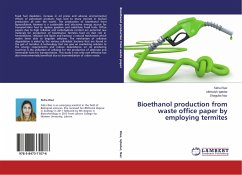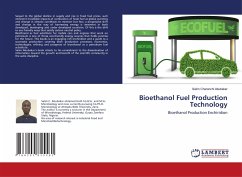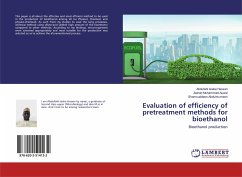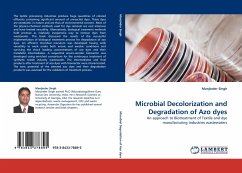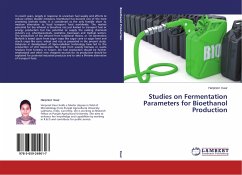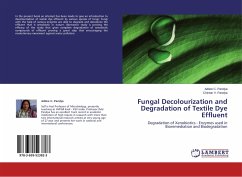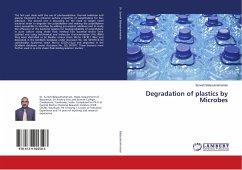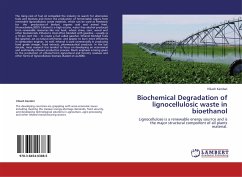
Biochemical Degradation of lignocellulosic waste in bioethanol
Lignocellulose is a renewable energy sourrce and is the major structural component of all plants material.
Versandkostenfrei!
Versandfertig in 6-10 Tagen
32,99 €
inkl. MwSt.

PAYBACK Punkte
16 °P sammeln!
The rising cost of fuel oil compelled the industry to search for alternative fuels and biomass and hence the production of fermentable sugars from renewable lignocellulosic waste materials, which can be used as feedstock for the production of biofuel, organic acid and animal feed. (Arunachalam,2007).Ethanol is a high octane, water free alcohol produced from renewable resources like rice husk, wheat straw, corn, wood and other biomaterials. Ethanol is most often blended with gasoline usually as a 10 per cent mix to create a fuel called gasohol. Ethanol blended fuels like gasohol, act as natural...
The rising cost of fuel oil compelled the industry to search for alternative fuels and biomass and hence the production of fermentable sugars from renewable lignocellulosic waste materials, which can be used as feedstock for the production of biofuel, organic acid and animal feed. (Arunachalam,2007).Ethanol is a high octane, water free alcohol produced from renewable resources like rice husk, wheat straw, corn, wood and other biomaterials. Ethanol is most often blended with gasoline usually as a 10 per cent mix to create a fuel called gasohol. Ethanol blended fuels like gasohol, act as natural antifreeze, and appear to burn more efficiently in combustion engines. As well, ethanol is used commercially in producing food grade vinegar, food extracts, pharmaceutical products.In the last decade, most research has tended to focus on developing an economical and ecofriendly ethanol production process. Much emphasis is being given to the production of ethanol from agricultural and forestry residues and other forms of lignocellulosic biomass (Kadam et al,2000).



